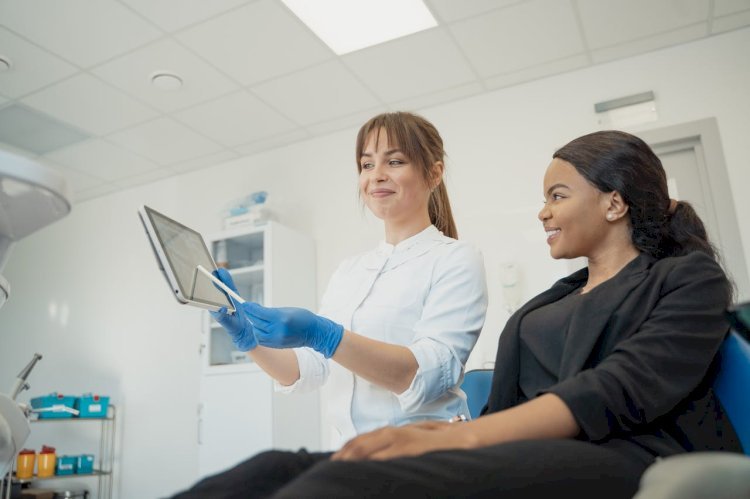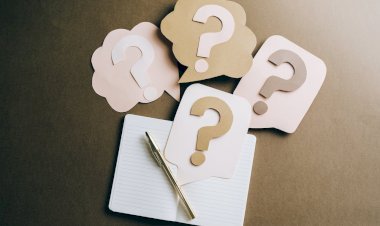ChatGPT in Medicine: Revolutionizing Care Management
Discover how ChatGPT in Medicine is revolutionizing healthcare by improving patient care, diagnostics, communication, and administrative efficiency.

Artificial intelligence is rapidly transforming healthcare. ChatGPT in Medicine, a sophisticated application of AI language models, is at the forefront, offering an innovative approach to managing patient care. Its potential to enhance communication, improve diagnostics, and streamline administrative tasks is capturing the attention of healthcare professionals globally. As this technology continues to evolve, it promises to shape the future of the medical field, making health services more efficient and accessible. Keep reading to explore the multifaceted impact of ChatGPT in the world of medicine.
ChatGPT in Medicine: Transforming Patient-Provider Interactions
ChatGPT is transforming healthcare by enhancing how providers communicate with patients. Its ability to deliver quick, personalized responses improves patient experience, builds trust, and supports better adherence to medical advice. By handling routine inquiries, ChatGPT allows healthcare professionals to focus more on complex patient needs, ultimately improving the quality of care and reducing staff workload.
Beyond communication, ChatGPT for doctors offers valuable support in clinical settings. It stays current with the latest research, aids in evidence-based decision-making, and simplifies patient education on treatments and lifestyle management. With its 24/7 accessibility and ability to bridge language barriers, ChatGPT ensures patients receive consistent, reliable information whenever they need it.
Leveraging ChatGPT for Enhanced Diagnostic Accuracy
ChatGPT is transforming diagnostics in medicine by rapidly analyzing extensive medical data such as symptoms, patient histories, and genetic information to assist clinicians in identifying illnesses more accurately. Its machine learning capabilities enable continuous improvement, allowing it to detect disease patterns that may be overlooked by human practitioners.
Integrated with electronic health record systems, ChatGPT can offer real-time diagnostic insights during consultations, reducing clinicians’ cognitive workload and supporting informed decision-making. While AI enhances diagnostic precision and efficiency, maintaining human oversight remains essential to ensure patient-specific nuances and professional judgment guide every medical decision.
Personalizing Patient Care with AI-Powered Chatbots
Personalized patient care is crucial for achieving better health outcomes, and ChatGPT-powered chatbots play a vital role in this process. By tailoring interactions to individual needs, they enhance patient engagement and create a sense of collaboration in care management. Through adaptive learning, ChatGPT recognizes personal health patterns, enabling targeted advice and meaningful follow-ups that strengthen continuity of care.
These chatbots can also support treatment adherence by reminding patients of medications, appointments, or prescribed exercises. In mental health, AI chatbots provide immediate, confidential support and guidance, offering therapeutic exercises or crisis assistance while maintaining a judgment-free environment that encourages trust and comfort among patients.
Streamlining Administrative Tasks in Healthcare through ChatGPT
ChatGPT is transforming healthcare administration by automating tasks such as appointment scheduling, insurance processing, and routine inquiries, allowing staff to focus on complex cases. It enhances documentation management through accurate transcription, report generation, and data entry into electronic health records, minimizing manual errors and improving workflow.
The AI also strengthens interdepartmental communication by providing quick access to organized information, which is essential for coordinated patient care. In medicine procurement, ChatGPT analyzes usage trends to predict inventory needs, helping healthcare facilities maintain balanced stock levels and optimize budgeting, leading to more efficient and sustainable operations across healthcare systems.
Ethical Considerations and Privacy Challenges of ChatGPT in Clinical Settings
The integration of ChatGPT into healthcare offers significant benefits but introduces ethical and privacy challenges. Protecting patient confidentiality is essential, requiring strict compliance with regulations like HIPAA to ensure data security and proper use. Informed consent remains critical, as patients must understand how AI handles their data and supports medical decisions.
Bias in AI systems must be monitored to prevent inequitable care outcomes. Over-reliance on AI poses risks, emphasizing the need for clinicians to balance technology with human judgment. Continuous oversight and transparency about ChatGPT’s capabilities and limitations are vital to maintaining trust, accountability, and adherence to ethical standards in patient care.
Altogether, the integration of ChatGPT into medical practice possesses the potential to revolutionize patient care and streamline healthcare operations. At the same time, it necessitates a thorough consideration of ethical and privacy-related issues to ensure that its deployment enhances, rather than undermines, the quality and integrity of healthcare services. As this promising tool is further refined and integrated, it stands to play a crucial role in the continued advancement of modern medicine.
Conclusion
The integration of ChatGPT in Medicine signifies a groundbreaking leap toward a smarter, more connected healthcare ecosystem. By improving communication, boosting diagnostic accuracy, and easing administrative burdens, ChatGPT empowers both medical professionals and patients alike. Its adaptability and learning capabilities pave the way for personalized, efficient, and patient-centered care. However, as this technology continues to evolve, maintaining ethical oversight and safeguarding patient data will be crucial. The ultimate goal is a balanced partnership between AI and human expertise—where technology enhances compassion, precision, and accessibility in every facet of healthcare.
FAQs
1. How is ChatGPT used in medicine today?
ChatGPT in Medicine is used for patient communication, symptom triage, appointment scheduling, medical documentation, and even assisting doctors in clinical decision-making by analyzing vast datasets.
2. Can ChatGPT help with medical diagnoses?
While ChatGPT can assist by analyzing symptoms and medical records to suggest possible conditions, it is not a substitute for a licensed healthcare professional. It supports decision-making rather than providing final diagnoses.
3. What are the benefits of ChatGPT for healthcare providers?
ChatGPT reduces administrative workload, enhances patient engagement, provides instant access to medical knowledge, and supports more accurate, data-driven decisions—helping healthcare teams work more efficiently.
4. How does ChatGPT ensure patient privacy and data security?
ChatGPT applications in healthcare are designed to comply with strict privacy laws like HIPAA. Data encryption, anonymization, and user consent protocols are critical for protecting patient information.
5. What challenges does ChatGPT face in healthcare adoption?
Challenges include maintaining ethical standards, addressing AI bias, ensuring transparency, and preventing over-reliance on automation. Continuous updates and human oversight are vital for responsible use in medicine.
Read More: Effective Strategies to Eliminate Your Tax Debt Once and For All

 alissaperry
alissaperry 






















